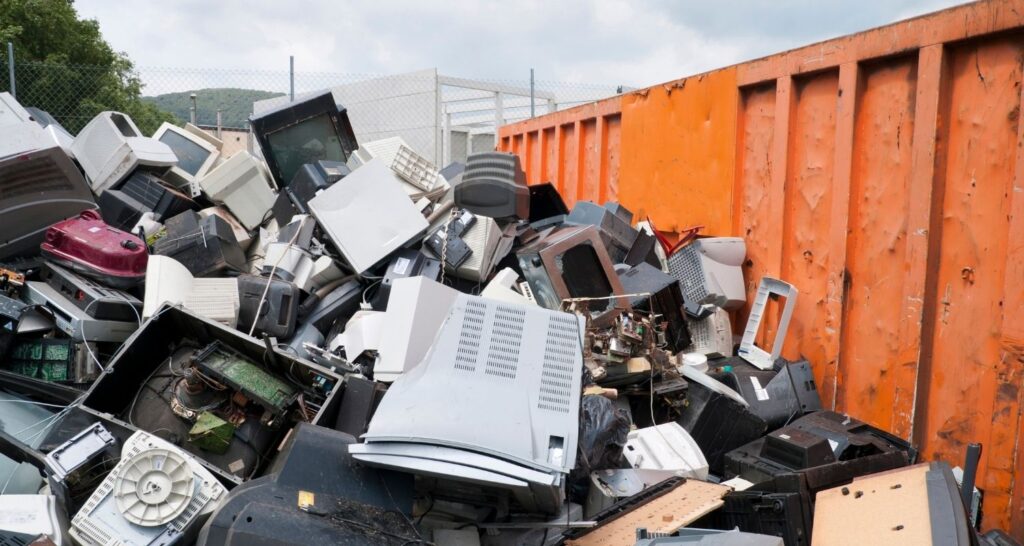What Is a Waste Management System?
A waste management system is an organization’s plan for disposing of, reducing, reusing and preventing trash. Recycling, composting, incineration, landfills, bioremediation, waste to energy, and waste reduction are all waste disposal strategies.
Methods of Waste Disposal
Sustainable waste management solutions are the norm in the modern day. Numerous waste management systems and techniques are available; these tactics can be combined or modified to create an organization-specific waste management strategy. Other waste management solutions include trash reduction, reuse and recycling.
Recycling, also known as “physical reprocessing”, is the most environmentally friendly method of disposing inorganic waste such as plastic, glass and metals. While organic waste such as paper and food can be recycled, composting is a more environmentally friendly way of trash disposal, since it turns organic waste into nutrient-dense fertilizer.
On the other side, waste to energy (or “WtE”), converts non-recyclable trash into heat, power or fuel using renewable energy sources such as anaerobic digestion and plasma gasification.
Anaerobic digestion is a biological process which converts animal waste and human waste into methane-rich biogas. Plasma gasification converts hazardous waste to syngas by running a plasma-filled vessel at high temperatures and low oxygen levels. Another method of hazardous waste disposal is bioremediation, which involves the treatment of poisons, toxins and pollutants using microorganisms.
Methodologies and Best Practices
A waste audit is an examination of the waste management system of a business; it tracks garbage from creation to disposal. Garbage audits are often conducted through the review of documents, facility walk-throughs and waste sorting.
- First Strategy: This includes examining garbage carrying and disposal records (and contracts with recycling businesses).
- Second Strategy: This needs an internal auditing team to detect waste-generating operations through observation and staff interviews.
- Third Strategy: This is gathering, sorting, and weighing a sample of an organization’s garbage on a physical level. This sample may consist of a single day’s rubbish or a collection of waste from each department.
Significance of Waste Management
Waste management encompasses a range of activities including the disposal of solid, liquid, gaseous or toxic pollutants. Waste management minimizes waste’s negative impact on the environment and public health, etc. Additionally, it assists with reusing and recycling materials such as paper, cans and glass.
When considering trash management, numerous factors must be considered including disposal techniques, recycling methods, waste avoidance and reduction measures, and garbage transportation. Waste management includes the treatment of both solid and liquid waste. Additionally, it provides several recycling options for goods not classified as garbage throughout the treatment process.
5 Advantages of Waste Management Systems
- Improves the Environment

The most significant benefit of waste management is that it results in a cleaner, healthier environment. Additionally, waste disposal systems contribute to people’s well-being by assisting them in being disease-free. The best thing is that all this occurs while the extra waste is properly and hygienically disposed of.
- Pollution Reduction
When trash is handled properly, it eliminates future waste. It significantly minimizes the effect and intensity of dangerous greenhouse gasses such as carbon dioxide, carbon monoxide and methane which are often emitted by collected wastes in landfills. Waste management decreases our dependency on landfills, while greatly reducing the many elements that negatively influence our environment.
- Energy Conservation
Recycling is a significant element of waste management, and it contributes to energy conservation over time. One of the most visible examples of this benefit is the practice of paper recycling. We’re all aware that thousands of trees are felled to make paper. When recycled paper is utilized to manufacture new paper, the requirement for tree chopping is considerably reduced; this contributes to energy conservation while also lowering carbon impact.
- Creates Jobs
As more individuals embrace this environmentally responsible approach, companies dedicated to making and selling recycled items gain prominence. This helps them grow their company and create jobs. Thousands of jobs are generated by the recycling business alone.
- Makes a Difference
While we cannot eliminate trash, we can always practice eco-friendly waste reduction and reuse. By controlling garbage, we positively contribute to society and the earth. By doing so, you set an example for others around you, who are then driven to adopt a more sustainable approach as well.
Visit Reaction Distributing online to learn more about waste management systems or call us at (866) 244-0009 today



